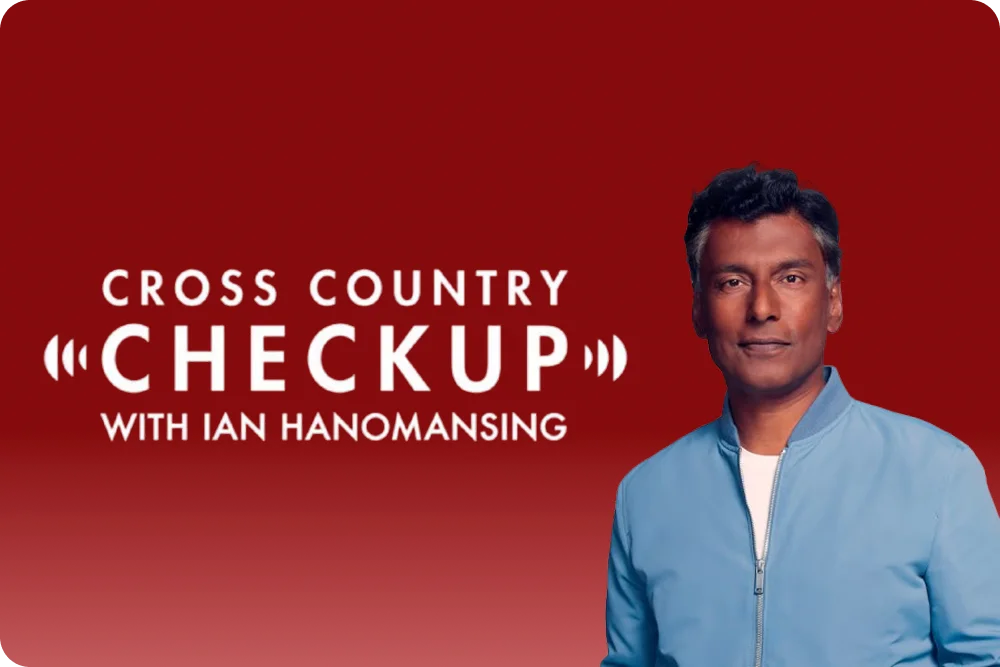Knowledge of the Commitment Behind Marriage Counseling
Marriage counseling cannot be a one-time chat, nor is it a quick remedy. It is something that requires time and the joint effort of both spouses. It aims to help couples learn to be emotionally expressive, end harmful dynamics, and reconnect emotionally. The following is what to expect in any typical journey of counseling:Key Takeaways: Marriage counseling is a step-by-step procedure The speed at which you succeed is with your participation and the willingness to tell the truth.
Influencing Factors of the Length of Marriage Counseling Process
How long is marriage counseling in a real sense? The duration depends, yet a couple of factors contribute to the question of how many sessions there should be and how fast you will be getting results:Factor
Couples’ Commitment
Session Frequency
Therapist’s Approach Some approaches (Emotionally Focused Therapy) have been shown to show faster progress.
Goals Whether you are recovering from a betrayal, working to improve your connection, or seeking clarity about the future, the purpose of therapy can inform the duration of your treatment.
Important Notes:
How Long Is Marriage Counseling and What to Expect

Let’s Review What Typical Timelines Might Look Like:
Counseling DurationEven shorter-term counseling can be impactful if both partners are aligned and open to the work. When discussing more complex issues, it could take months of consistent work. Couples typically attend weekly sessions for an average of 3 to 6 months.
Important Points:
How Many Marriage Counseling Sessions Does One Need?
If you’ve been asking how many sessions one needs in marriage counseling, the answer is: it depends. A single session may reveal only surface-level issues; however, creating lasting change typically requires consistency and ongoing effort.Below are some very general guidelines based on real scenarios:
Several additional factors contribute to the rate of change, including compatibility with your therapist, whether both partners consistently attend sessions, and the willingness to complete homework assignments between sessions.
Summary:
What a Marriage Counseling Journey Typically Looks Like
Therapy typically has a step-wise approach to focus on connecting progressively.Summary:
Can You Fast-Track Marriage Counseling?
Yes — but only with purpose. If you’re both willing to work at it, you can make faster progress.Ways to fast-track your progress:
What slows counseling down:
Take-home message:
What’s the Length of Marriage Counseling If We Consider a Retreat Style Approach?
Couples retreats are popular for a good reason; they provide concentrated support in a short amount of time. Rather than spending 6 months doing weekly therapy, you can achieve breakthroughs in a few days.Weekly Therapy:
Marriage Retreat:
Retreats are perfect if:
Key Takeaways:
Why You Should Consider Marriage Counseling Maybe Right Now
If you’re questioning if it’s time for marriage counseling, you’re probably already feeling the pressure of that decision. Don’t wait for things to escalate. Early intervention not only can avoid damage but also increases your likelihood of success.Here are some common signs that you should enroll in counseling now:
Key Points:
What makes it different:
Why couples love it:
Included in the program:
Key Benefits:
Whether it is a crisis or just revitalization, the depth of transformation is incredible when provided in a short period.
Key Takeaways:
What Happens After Marriage Counseling Ends?
After your sessions or retreat is over, what happens next? Good counseling leaves you with tools for long-term change. However, similar to any skill, you need to practice relationship skills to develop them.How Do You Maintain the Momentum?
Some couples go so far as to make therapy an annual event, checking in together during life transitions or after stressful periods.
Key Take-Aways:
Introducing Marriage Sessions at Couples Retreat

For couples seeking a longer, all-inclusive, and distraction-free environment to heal and reconnect, Couples Retreat offers a therapeutic experience.
The Important Details
The Benefits
In concluding the retreat series, areas where marriage counseling can be adjusted to the couple are previously determined. Each couple takes their own time to commit to the process, while the therapist supports this. All aspects of therapy described put the couple in control of where they want the process to lead. For couples seeking a highly individualized experience, the Couples Retreat will guide them on a path to change, healing, and reconnection.
Conclusion
Marriage counseling is a process and not a solution. However, when conducted in the context of honesty, regularity, and a safe environment, marriage counseling can be transformational for the lives of couples. Whether you choose weekly sessions or a weekend retreat for marriage counseling, timelines will differ, depending on your intended progress, challenges, and desire to evolve together. What matters most is that you start before your connection cannot be easily recovered. If you and your partner are ready to embark on a couples healing journey, there is no time like the present, as your marriage deserves a chance to be heard, healed, and revitalized.
FAQs
When is the right time for marriage counseling if we’re thinking about separating?
If you’re asking whether now is the right time for marriage counseling, the answer is probably yes—especially if separation or divorce has crossed your mind. When a couple reaches a point where trust feels fragile, communication breaks down, or distance grows emotionally and physically, therapy becomes more than a suggestion—it becomes a vital intervention. Often, couples wait too long to seek help, assuming problems will resolve themselves. However, the earlier you enter therapy, the more options and emotional capacity you have to rebuild your life. Counseling offers a neutral space where both partners can express fears, frustrations, and desires without fear of judgment or blame. Whether you ultimately stay together or choose to part, counseling helps you gain clarity, make informed decisions, and avoid repeating destructive patterns. If you’re on the edge, don’t wait for things to get worse. The best time for marriage counseling is when you feel your connection weakening—and before resentment builds past the point of repair.
How many marriage counseling sessions are needed for couples facing trust issues?
Rebuilding trust after it’s been broken—through infidelity, secrecy, or emotional withdrawal—takes time. The answer to how many marriage counseling sessions are needed depends on several factors: how deep the breach was, whether both partners are committed to healing, and how consistently you attend therapy. Generally, couples dealing with severe trust issues should expect to spend at least 20 to 30 sessions working with a licensed therapist. These sessions often follow a structured path: re-establishing emotional safety, uncovering the root causes of the betrayal, exploring individual emotional needs, and rebuilding shared agreements for the future. If one partner is reluctant or the couple struggles to communicate outside therapy, progress can slow. On the other hand, couples who are transparent, emotionally present, and actively practicing trust-building exercises can begin to see changes sooner. The time for marriage counseling in trust recovery is always sooner rather than later—while both partners are still emotionally available to do the work.
Can a marriage counseling retreat replace weekly therapy sessions?
Absolutely. In many cases, an intensive marriage counseling retreat can deliver more emotional breakthroughs than months of weekly sessions. Retreats offer a focused, immersive environment where couples can set aside daily distractions and invest deeply in their relationship. A typical retreat includes multiple therapy blocks per day, both joint and individual. This format compresses 2–6 months of traditional therapy into 3–5 days of dedicated work. Retreats are particularly effective for couples in crisis, those needing rapid progress, or those living in environments where privacy or time is limited. While follow-up sessions may be necessary afterward, many couples report that retreats helped them reset their communication, rebuild trust, and rediscover intimacy more quickly than expected. Retreats are beneficial when both partners are committed to being fully present and showing up. If you’re wondering how long marriage counseling is, a retreat could be a powerful answer if your relationship needs immediate attention without the long calendar timeline.
How long is marriage counseling for couples recovering from infidelity?
Healing from infidelity isn’t just about forgiveness—it’s about rebuilding an entirely new layer of trust, safety, and emotional honesty. For most couples recovering from cheating or betrayal, how long is marriage counseling? Expect at least 6 months of consistent therapy. Many therapists recommend weekly sessions over that period, with some couples continuing for a year or longer, depending on the depth of trauma. These sessions typically cover both the emotional fallout of infidelity and the relational patterns that allowed distance or secrecy to develop in the first place. A mix of private therapy, joint sessions, and couples-based trust-building exercises is essential. Therapists may also introduce boundary-setting frameworks and healing rituals that support recovery and healing. Patience and openness are crucial. If you’re both committed to the process, infidelity doesn’t have to end your relationship—it can, surprisingly, become the turning point for deeper growth. The key is to start early. If you’re asking when the time for marriage counseling is after infidelity, the answer is now.
What should we expect from our first few marriage counseling sessions?
Your first few sessions in marriage counseling are focused on building understanding and creating a safe environment. Most therapists use these early meetings to gather information about your relationship history, communication style, current issues, and your goals for therapy. Don’t expect to fix everything in the first session. Instead, you’ll begin to understand the patterns that have been holding you back and start setting shared goals with your partner. Some therapists use assessments or questionnaires to gain a more comprehensive understanding of the strengths and weaknesses of your relationship. You’ll also explore how sessions will be structured going forward and how to track progress over time. Many couples find relief even in the first session just by having a safe place to talk without interruption or judgment. If you’re unsure about whether it’s the right time for marriage counseling, these early sessions will clarify your direction. They lay the foundation for open conversation, mutual respect, and intentional growth going forward.









